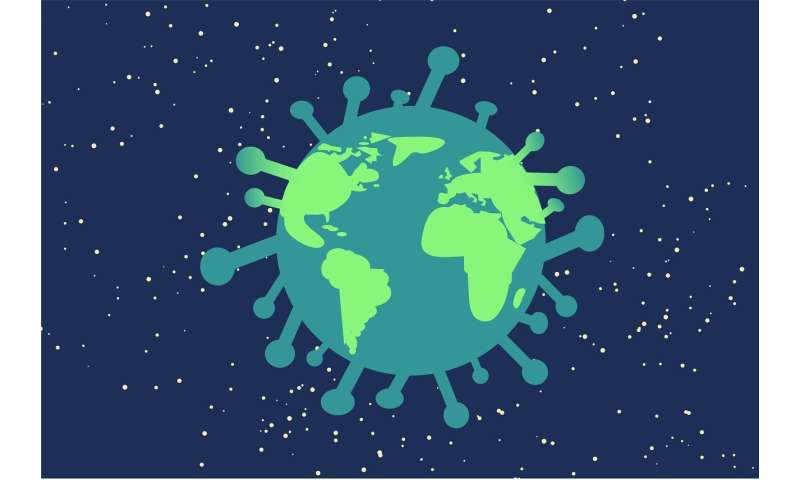Survey finds large increase in psychological distress reported among US adults during the COVID-19 pandemic

A new survey conducted by researchers at the Johns Hopkins Bloomberg School of Public Health during the COVID-19 pandemic found a more-than-threefold increase in the percentage of U.S. adults who reported symptoms of psychological distress—from 3.9 percent in 2018 to 13.6 percent in April 2020. The percentage of adults ages 18-29 in the U.S. who reported psychological distress increased from 3.7 percent in 2018 to 24 percent in 2020.
The survey, fielded online April 7 to April 13, found that 19.3 percent of adults with annual household incomes less than $35,000 reported psychological distress in 2020 compared to 7.9 percent in 2018, an increase of 11.4 percentage points. Nearly one-fifth, or 18.3 percent, of Hispanic adults reported psychological distress in 2020 compared to 4.4 percent in 2018, a more than four-fold increase of 13.9 percentage points. The researchers also found that psychological distress in adults age 55 and older almost doubled from 3.8 percent in 2018 to 7.3 percent in 2020.
The survey found only a slight increase in feelings of loneliness, from 11 percent in 2018 to 13.8 percent in 2020, suggesting that loneliness is not driving increased psychological distress.
The findings were published online June 3 in a research letter in JAMA.
The disruptions of the COVID-19 pandemic—social distancing, fear of contracting the disease, economic uncertainty, including high unemployment—have negatively affected mental health. The pandemic has also disrupted access to mental health services.
“We need to prepare for higher rates of mental illness among U.S .adults post-COVID,” says McGinty. “It is especially important to identify mental illness treatment needs and connect people to services, with a focus on groups with high psychological distress including young adults, adults in low-income households, and Hispanics.”
The survey used a scale to assess feelings of emotional suffering and symptoms of anxiety and depression in the past 30 days. The survey questions included in this analysis did not ask specifically about COVID-19. The scale, a validated measure of psychological distress, has been shown to accurately predict clinical diagnoses of serious mental illness.
Using NORC AmeriSpeak, a nationally representative online survey panel, the researchers analyzed survey responses of 1,468 adults ages 18 and older. They compared the measure of psychological distress in this survey sample from April 2020 to an identical measure from the 2018 National Health Interview Survey.
Source: Read Full Article


